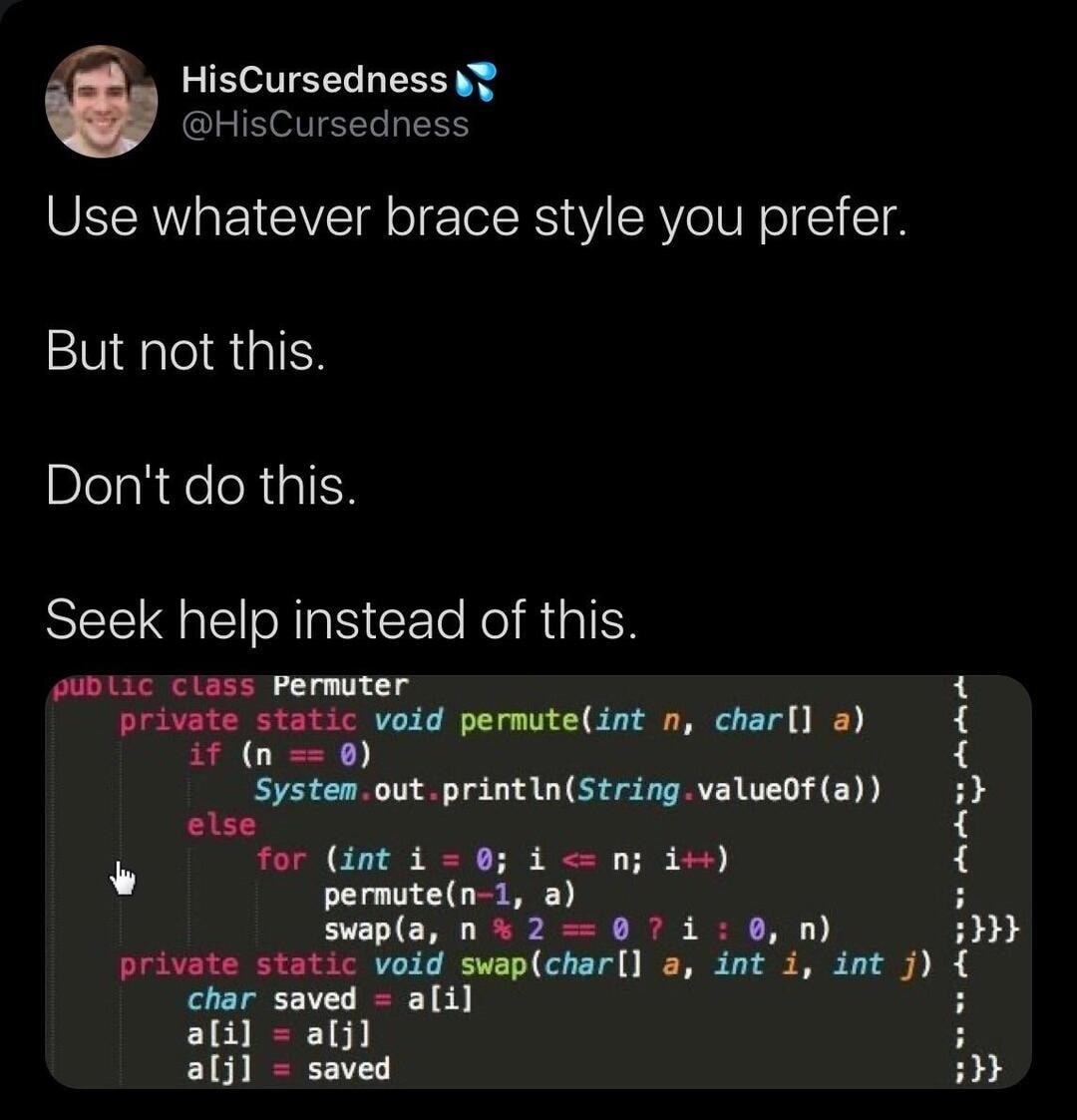this post was submitted on 28 Jul 2024
1299 points (99.0% liked)
Programmer Humor
19887 readers
372 users here now
Welcome to Programmer Humor!
This is a place where you can post jokes, memes, humor, etc. related to programming!
For sharing awful code theres also Programming Horror.
Rules
- Keep content in english
- No advertisements
- Posts must be related to programming or programmer topics
founded 2 years ago
MODERATORS
you are viewing a single comment's thread
view the rest of the comments
view the rest of the comments

I kinda like it..
I think you'll like Ruby. It has mostly done away with braces and code blocks end with
end, e.g.This is working code that I simplified a bit from an old project of mine.
Ruby syntax is nice although I prefer python way of enforcing indentation instead of adding "end"s. Personally I just want a statically typed language with enforced indent as syntax.
Funny, the forced indentation is what I hate about Python. If you think a missing semicolon can be hard to catch, don't ever think about a missing whitespace :p
The
endkeyword really isn't a big deal for me. I find it to be a good way to easily spot the end of a method. But if you wouldn't like it I'd still find it a good compromise to avoid syntax issues due to whitespace.i can count on one hand how many times ive had white space issues in 15 years of using python. its just not an issue
Same and agreed, especially if you keep your functions small and focused as you should. 3-5 indents is nbd to keep track of, and if you need more than that... No you don't, refactor.
I've had way more hangups with brackets then indentation, personally, not that either is a super frequent issue, but I'm indenting anyway, so brackets are redundant and just another thing I have to keep track of
}helps me easily spot the end of stuff.endjust blends into the statements.Just add a linter to your build lol. Now if it's indented wrong it breaks!
That's just Algol instead of B. Most languages use the one or the other, then there's sexpr-based languages (lisp, scheme), lua (technically Algol but not needing semicolons while also not needing newlines so it's definitely special), and layout syntax (Haskell, or, if you want a bad implementation, python).
Who's going to write the extension so that they are all hidden and automatically inserted?
Might check out the Haskell layout rules.
Basically, when you leave out the '{' then Haskell uses your intendation to insert ';}' on later lines between the leading whitespace and the first token.
There some really old Haskell code out there that lines up the '{;}' characters on the left under block-introduction keywords.
It's not just old Haskell code that's how you write Haskell if you want explicit braces. Well, mostly generate, but it's still the idiomatic formatting (and when you generate you always generate braces because it's easy to get layout subtly wrong when generating).
Haskell also does the whole
thing, makes sense to apply it to braces especially as they're seen only very rarely. Single-line, yes, but not multi-line.